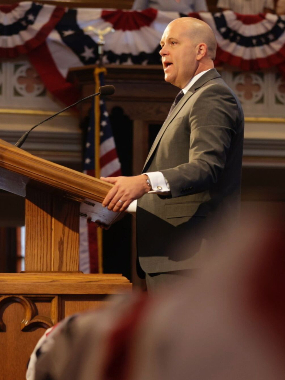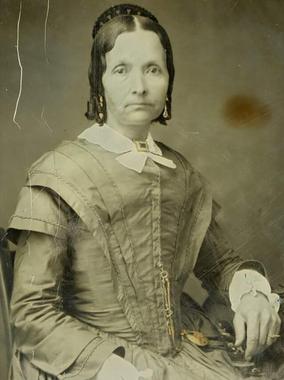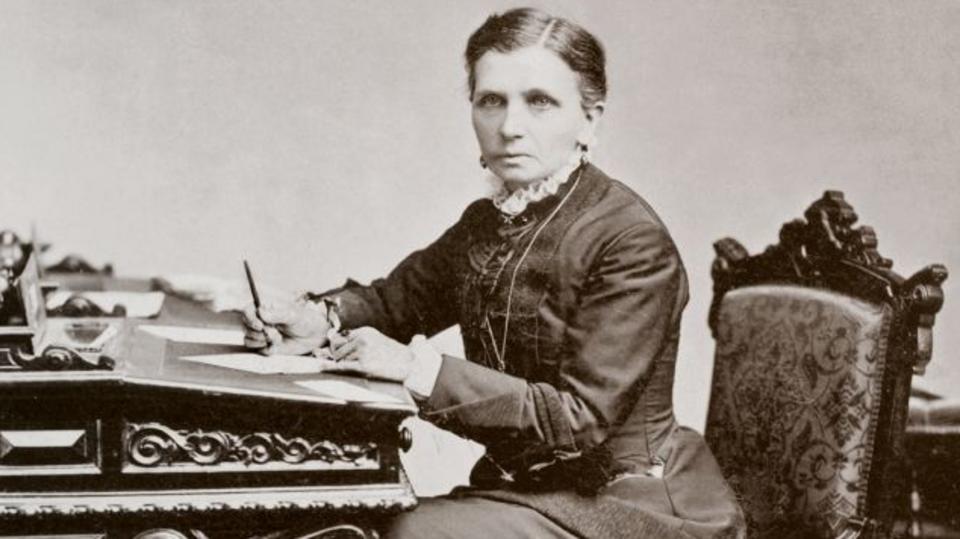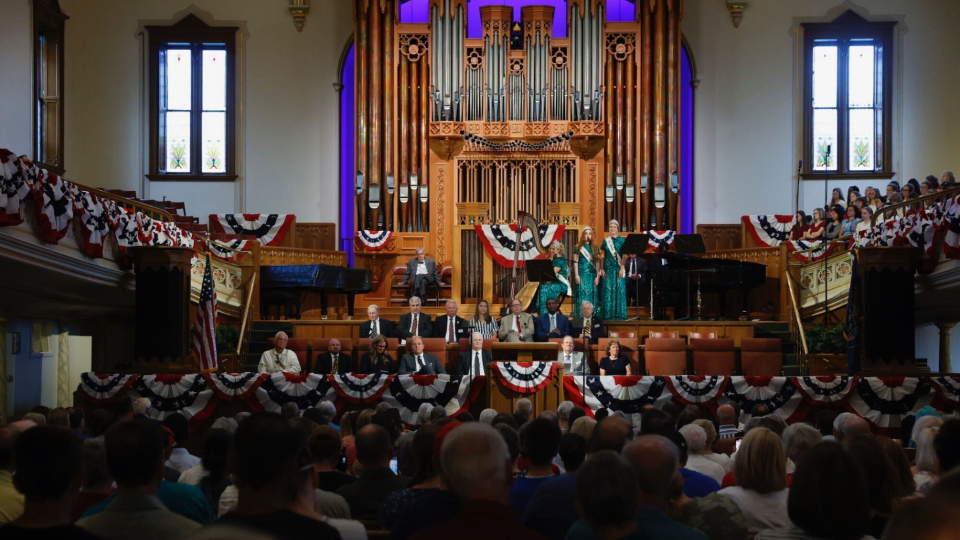- Sunrise-Service-2023
- Sunrise-Service-2023
- Sunrise-Service-2023
- Sunrise-Service-2023
- Sunrise-Service-2023
- Sunrise-Service-2023
- Sunrise-Service-2023
- Sunrise-Service-2023
- Sunrise-Service-2023
| Temple Square is always beautiful in the springtime. Gardeners work to prepare the ground for General Conference. © 2012 Intellectual Reserve, Inc. All rights reserved. | 1 / 2 |
This story appears here courtesy of TheChurchNews.com. It is not for use by other media.
By Joel Randall, Church News
The parties, barbecues and parades of today’s Pioneer Day in Utah are an invitation to remember who pioneers are and what they do, said Elder James W. McConkie III, a General Authority Seventy.
He said: “Pioneers are the kind of people who fill us with inspiration and courage as they go first to new places or advance new ideas, always under seemingly impossible circumstances. We admire their resolve and are persuaded by their commitment. They are worthy of celebration.”

Sunrise-Service-2023
Elder James W. McConkie III, a General Authority Seventy, speaks at the Days of ’47 Sunrise Service at the Assembly Hall on Temple Square in Salt Lake City on Monday, July 24, 2023. Photo by Megan Nielsen, courtesy of Church News.Copyright 2023 Deseret News Publishing Company.The word “pioneer,” said Elder McConkie, denotes someone “who went first,” whether to a place or to an idea. Pioneers often endure challenging, trying circumstances, to overcome an obstacle in a way that helps others to follow.
“Our task today is to be open — open to what the pioneers in our lives have to teach,” he said, “and to be mindful of all that they have done to prepare the way. Ours is to be willing to take the next step, go to the new place, consider a new idea, accomplish more ... than what seems possible.”
On Monday, July 24, Elder McConkie spoke at the Days of ’47 Sunrise Service at the Assembly Hall on Temple Square. He shared stories of three pioneer women who boldly prepared the way for others to follow: Eliza R. Snow, Emmeline B. Wells and Gwendolyn Bitner Wirthlin.
Eliza R. Snow
Eliza was the second president of the Relief Society, an organization that is itself “the embodiment of a pioneering idea,” said Elder McConkie. As the society’s first secretary, she held on to their meetings’ minutes and carefully moved them from Nauvoo, Illinois, to Winter Quarters to the Salt Lake Valley.

D11-Page-154-a.jpg
Eliza R. Snow (photographed circa 1856). Photo courtesy of the Church History Library. 2020 by Intellectual Reserve, Inc. All rights reserved.The Relief Society temporarily disbanded after Joseph Smith’s death in 1844. When asked to reorganize the Relief Society in 1867, Eliza used the minute books, said Elder McConkie, “to plant pioneering ideas and purpose of the Relief Society throughout a new generation of Latter-day Saints.”
In February 1869, Eliza visited the 17th Ward in the Salt Lake area and testified: “It is a blessing to us that we, at times, are brought into circumstances which are calculated to bring into exercise every power and faculty which we possess. It is true [that such circumstance] may not seem very desirable ..., but it has a tendency to strengthen and develop our abilities and prepare us for greater usefulness”
Elder McConkie said, “Eliza reminds us that we see in pioneers something more, something deep and substantial that evokes a sense of awe and respect. Eliza understood that true pioneering really starts to happen when things get hard.”
Emmeline B. Wells
With a talent for writing and a curiosity about life, Emmeline contributed to the Women’s Exponent, a newspaper operated by the Relief Society. She eventually worked as the editor of the paper for 37 years.

Emmeline-B.-Wells-2
Portrait of Emmeline B. Wells taken January 14, 1879. Photo courtesy of Church History Library.“There was an unusual clarity and persuasiveness in Emmeline’s expression,” said Elder McConkie. “So much so that many of her essays and articles in support of the suffrage movement, for example, were picked up and published by other periodicals throughout the United States.”
Emmeline advocated the right for women in Utah to vote, a request granted in 1895 with the Utah Constitution. A marble bust of Emmeline now stands in the Utah State Capitol, with the inscription “A Fine Soul Who Served Us.”
“Emmeline’s efforts to prepare the way for others,” Elder McConkie said, “and to advance ideas that were significant and meaningful for the larger community in which she lived magnified her skills, her talents, her abilities and her strength. Emmeline was a pioneer.”
Gwendolyn Bitner Wirthlin
Gwendolyn, born four days after Emmeline passed away, was Elder McConkie’s grandmother. She married James Wilson McConkie, a World War II veteran who taught music composition at the University of Minnesota.

Sunrise-Service-2023
Religious and government leaders sit on the stand for the Days of ’47 Sunrise Service at the Assembly Hall on Temple Square in Salt Lake City on Monday, July 24, 2023. Photo by Megan Nielsen, courtesy of Church News.Copyright 2023 Deseret News Publishing Company.James died of polio in 1953, leaving Gwendolyn to parent their three children alone, the oldest being 7. The desires to move forward with faith and provide for her family “were deep inside my grandmother,” said Elder McConkie. “She lived by them. They were part of who she was.”
Gwendolyn enrolled at the University of Utah and earned a master’s degree. She then moved her family to New York City to earn a doctorate degree at Teachers College, Columbia University. Elder McConkie said he could imagine long, lonely nights as she both studied and parented, but sacrificing to guide her family forward made her a pioneer.
He said, “Her example prepared the way for others to take the next step, to get and prioritize an education, to persevere in the face of devastating disappointment, to find purpose when all seems lost. ... Gwendolyn Bitner Wirthlin pioneered her family to a new place in the world and to the idea that we can do hard things.”
Copyright 2023 Deseret News Publishing Company.